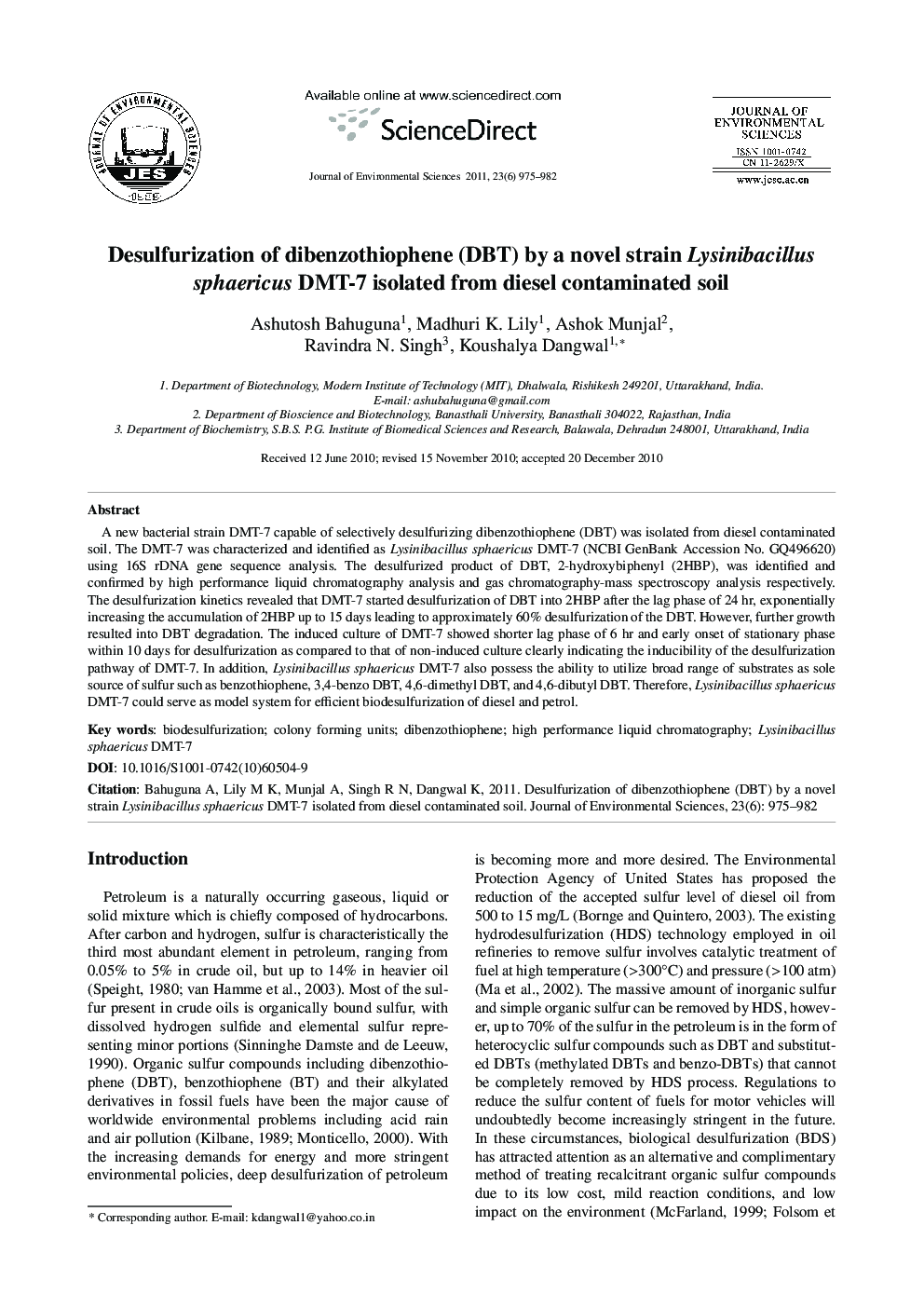| Article ID | Journal | Published Year | Pages | File Type |
|---|---|---|---|---|
| 4455467 | Journal of Environmental Sciences | 2011 | 8 Pages |
A new bacterial strain DMT-7 capable of selectively desulfurizing dibenzothiophene (DBT) was isolated from diesel contaminated soil. The DMT-7 was characterized and identified as Lysinibacillus sphaericus DMT-7 (NCBI GenBank Accession No. GQ496620) using 16S rDNA gene sequence analysis. The desulfurized product of DBT, 2-hydroxybiphenyl (2HBP), was identified and confirmed by high performance liquid chromatography analysis and gas chromatography-mass spectroscopy analysis respectively. The desulfurization kinetics revealed that DMT-7 started desulfurization of DBT into 2HBP after the lag phase of 24 hr, exponentially increasing the accumulation of 2HBP up to 15 days leading to approximately 60% desulfurization of the DBT. However, further growth resulted into DBT degradation. The induced culture of DMT-7 showed shorter lag phase of 6 hr and early onset of stationary phase within 10 days for desulfurization as compared to that of non-induced culture clearly indicating the inducibility of the desulfurization pathway of DMT-7. In addition, Lysinibacillus sphaericus DMT-7 also possess the ability to utilize broad range of substrates as sole source of sulfur such as benzothiophene, 3,4-benzo DBT, 4,6-dimethyl DBT, and 4,6-dibutyl DBT. Therefore, Lysinibacillus sphaericus DMT-7 could serve as model system for efficient biodesulfurization of diesel and petrol.
